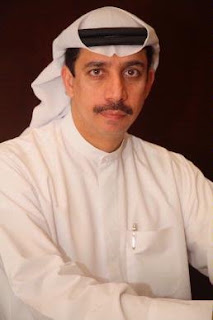18 April 2008
Abu Dhabi - UAE stocks continued their uptrend, making strong gains on the last trading day of the week, and lifting the Emirates Securities general index 0.64 per cent above its level on December 31, 2007.
Bullish trading resumed at Dubai Financial Market (DFM) where the general index advanced 1.25 per cent to 5,584.66, and Dh1.88 billion worth of shares changed hands.
DFM's shares were the heaviest traded accounting for more than Dh344 million worth of transactions, followed by Emaar Properties which reversed course gaining 0.45 per cent to close at Dh11.15. DFM surged 3.78 per cent to Dh5.49.
Biggest gainer
The biggest gainer, however, was Tamweel which shot up 5.1 per cent to Dh7.83, while Arabtec continued its uninterrupted gains assign 3.48 per cent to its value to close at Dh14.85.
Only five out of the twenty six traded companies recorded losses, of which most notably is Deyaar Development which retreated 0.85 per cent to Dh2.33, affected by the troubles facing its management and board of directors.
In Abu Dhabi, the general index advanced 0.68 per cent to 4,910.78 on relatively heavy trading worth Dh1.11 billion.
The real estate and banking sectors were the best performers, as the rally on Aldar Properties resumed lifting the price up 1.37 per cent to Dh11.20. Sorouh Real Estate maintained the upward trend as well advancing 0.63 per cent to Dh9.58.
In the banking sector, First Gulf Bank reported an impressive 4 per cent of gains to close at Dh22.00, followed by the National Bank of Abu Dhabi, the largest listed bank in Abu Dhabi in terms of market capitalisation, which advanced 2.44 per cent to Dh20.95.
Nevertheless, the market's total gains were negatively affected by etisalat's decline of 0.46 per cent to Dh21.80.
Overall, the Emirates Securities general index gained 1.01 per cent to close at 6,054.89 and to lift the market value of the listed shares up by Dh8.4 billion to Dh842.5 billion.
Bullish trading resumed at Dubai Financial Market (DFM) where the general index advanced 1.25 per cent to 5,584.66, and Dh1.88 billion worth of shares changed hands.
DFM's shares were the heaviest traded accounting for more than Dh344 million worth of transactions, followed by Emaar Properties which reversed course gaining 0.45 per cent to close at Dh11.15. DFM surged 3.78 per cent to Dh5.49.
Biggest gainer
The biggest gainer, however, was Tamweel which shot up 5.1 per cent to Dh7.83, while Arabtec continued its uninterrupted gains assign 3.48 per cent to its value to close at Dh14.85.
Only five out of the twenty six traded companies recorded losses, of which most notably is Deyaar Development which retreated 0.85 per cent to Dh2.33, affected by the troubles facing its management and board of directors.
In Abu Dhabi, the general index advanced 0.68 per cent to 4,910.78 on relatively heavy trading worth Dh1.11 billion.
The real estate and banking sectors were the best performers, as the rally on Aldar Properties resumed lifting the price up 1.37 per cent to Dh11.20. Sorouh Real Estate maintained the upward trend as well advancing 0.63 per cent to Dh9.58.
In the banking sector, First Gulf Bank reported an impressive 4 per cent of gains to close at Dh22.00, followed by the National Bank of Abu Dhabi, the largest listed bank in Abu Dhabi in terms of market capitalisation, which advanced 2.44 per cent to Dh20.95.
Nevertheless, the market's total gains were negatively affected by etisalat's decline of 0.46 per cent to Dh21.80.
Overall, the Emirates Securities general index gained 1.01 per cent to close at 6,054.89 and to lift the market value of the listed shares up by Dh8.4 billion to Dh842.5 billion.
By Ahmed A. Elewa
© Gulf News 2008
